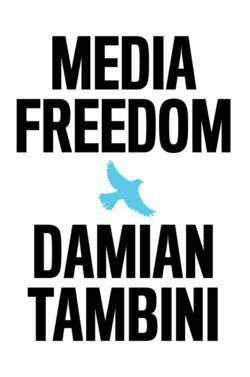Читать книгу Media Freedom - Damian Tambini - Страница 18
Institution Building or a Slippery Slope?
ОглавлениеJournalism and the media often seek protection through the building of institutions: self-regulatory bodies, funding mechanisms, ethical codes, professional bodies. Increasingly, media governance takes the form of ‘regulated self-regulation’88 or the codification of rules and ethics in transparent and accountable organizations which protect media autonomy. But media operators often resist institution building, failing to see this as the construction of frameworks which can protect plural messages, and fearing that it creates new vectors of control. Almost all legal and policy reasoning in this respect derives from two theoretical claims: that building institutions will lead to slippery slopes to state control and that state control will lead to a conflict of interest: powerful interests exert information control to perpetuate their dominance.
The point is often made that to create or augment regulatory structures – even new forms of self-regulation – would be a step on a slippery slope to censorship. Take for example the proposals in the UK, in 2012, for a new law, or a Royal Charter on the Press. Self-regulation was generally deemed to have failed in the light of a scandal about illegal and unethical journalism, and it was proposed to establish a new body, independent of government, which would have a limited role of checking that a new self-regulatory body was in fact doing its job. Even among those that acknowledged the failure of press self-regulation, it was widely asserted that the establishment of a new body which would audit the performance of the self-regulator was a slippery slope to censorship: the new body would be given a longer list of duties; it would be used as a vector to transmit demands on the press from powerful ministers.
For a slippery-slope argument to be successful, however, it must provide an explanation of lubrication and of gravity: why is it that there will be inevitable pressure towards censorship? Will there really be insufficient checks and controls – that is, friction – to prevent the slide to censorship? And why does this reform necessarily lead to more pressure towards government control? It is certainly the case that governments will try to control the media, but why would this specific reform make this easier? Strengthening self-regulation, by a well-resourced but small body that has robust constitutional independence from the state, could protect the press from both future regulation and pressure from publishers. Fears of a slippery slope to censorship could only be justified by a convincing explanation of why and how such a reform would make government control easier. Arguments that institutions per se necessarily lead to censorship are weak. By reinforcing ethics they may prevent it.
